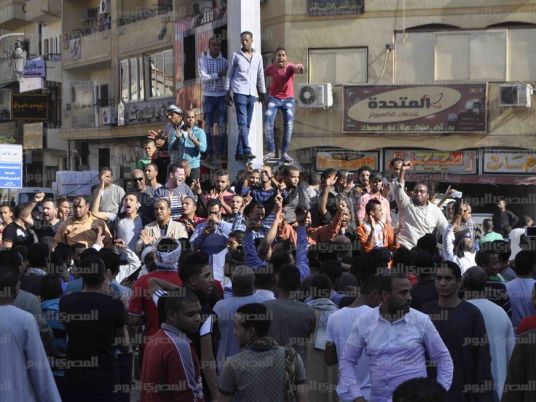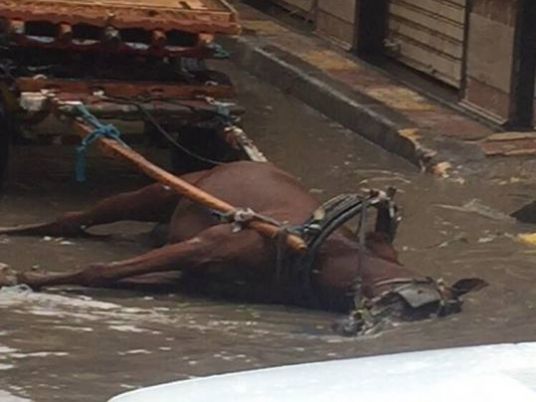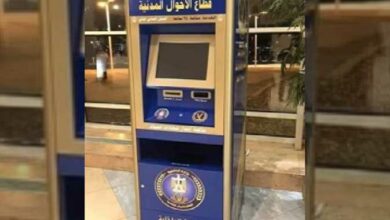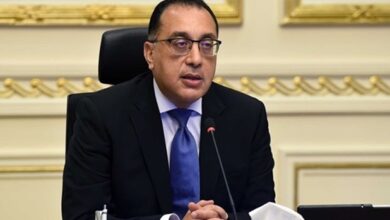
Fathia Hashem was preparing for bed when Egyptian plainclothes police burst into her house, forced her into a van and ordered her to lead them to her son Amr Abushanab's apartment.
Three days later, she watched police escort him to be questioned by prosecutors. Two officers held him up as he struggled to walk, his face pale and his vest stained with blood. He told her he had been beaten and subjected to electric shocks. Within hours he was dead. He was 32.
Unlike the families of scores of other Egyptians that rights groups say die in police custody every year, Abushanab's family has gone public, as have those of two other men who died in police custody in the span of a week.
The spate of deaths has drawn rare media attention and prompted some street demonstrations, an echo of the public anger over police brutality that helped spark the revolution that brought down President Hosni Mubarak five years ago.
"If 1,000 million officers died in front of my very eyes I would not cry for them because of my son," Abushanab's mother wailed in the courtyard of the family home in the village of Tahanoub in the Nile Delta north of Cairo. "The fire in my heart will not be extinguished until (the perpetrator) dies like my son."
Egypt has a long history of police abuse under generations of military rulers. The "Arab Spring" revolt that toppled Mubarak began as a protest march during a national holiday to celebrate the police force in January 2011, fed in part by a "We are all Khaled Said" Facebook campaign by activists over the death of a man beaten to death by police on the street in Alexandria.
Nearly five years later, the latest deaths are creating rare pressure on another general-turned-president, Abdel Fattah al-Sisi. Abushanab's family has launched a "We are all Amr Abushanab" page on Facebook.
In the eastern city of Ismailiya, protesters burned tires in the streets after a middle-aged veterinarian died in custody hours after being hauled from his wife's pharmacy on November 25.
In Luxor, police fired tear gas at protesters who clashed with them and set a car on fire on November 27, protesting over the death in custody of a man picked up by police from a cafe. Twenty-four people were held over the clashes.
"Sisi, whom we elected, the father of the state who is meant to protect us; is it right to take our children from their homes and kill them?" said Abushanab's mother.
"Rule of law"
Sisi has tried to show he is hearing the message. In a surprise visit to a police academy on Thursday, the president thanked the police for their accomplishments and said transgressions by police were limited but should be punished.
"We want to consolidate the rule of law," he said.
In all three cases, authorities say they are investigating and will punish any police officers found guilty of abuse.
In Abushanab's case, public prosecutors are questioning one officer, although they have yet to open an official inquiry into how and why he died, a judicial source said. A preliminary coroner's report has yet to be issued.
A health official who examined the body recorded bleeding from the mouth and nose and various bruises and swellings, according to medical documents seen by Reuters. But a subsequent report blamed his condition on a pre-existing illness.
Police have accused Abushanab of dealing drugs and said he was arrested with heroin and a gun.
His family deny Abushanab was sick at the time of his arrest, or was any kind of criminal. He had been working on a building site in Cairo, they said, and left behind a wife and two young sons.
Human rights activists have called on the government to set up an independent body to investigate allegations of police brutality.
In 2013 and 2014, the Egyptian Initiative for Personal Rights (EIPR) counted 114 deaths in police detention, and said the true numbers are likely to be higher. It is still compiling statistics for this year.
"As long as they treat these as isolated incidents, nothing will change. The Interior Ministry first needs to acknowledge there is a systemic problem and a culture of impunity that means police feel they can get away with violence," said Karim Ennara, criminal justice researcher at EIPR.
A source at the Interior Ministry said he could not comment on the number of deaths in police detention but said all cases were investigated. He said overcrowding at police stations was a problem, which the ministry was working to resolve.
Ezzat Ghoneim, of the Egyptian Coordination on Rights and Freedoms, blamed a police culture of forcing confessions.
"All efforts by the authorities to curtail this phenomenon will fail as long as … the accused are forced to confess to any crime, even if they did not commit it," he said.
Teaching a lesson
In Ismailiya, the death of veterinarian Afifi Hosni Afifi prompted a barrage of criticism from bodies that represent veterinarians and pharmacists, which pressed murder charges.
Footage captured by a security camera and posted online shows three men in plain clothes pushing Afifi into a corner of the pharmacy, shoving him and pulling him by the scruff of his neck.
Police said in a statement they detained Afifi on suspicion of selling drugs hidden in a car parked outside the pharmacy, and that he had a heart attack. Afifi's uncle said one of the policeman who abused him was a friend of the son of Afifi's landlord, harassing the family to terminate their lease.
When Afifi's wife arrived at the police station, she found him already in poor condition. He died in hospital soon after.
A police officer has been detained on charges of beating Afifi and entering the pharmacy without a warrant. In a preliminary report seen by Reuters, the coroner's office said it was investigating an injury to the back of Afifi's neck. A final report has yet to be issued.
In Luxor, the southern trove of Egypt's Pharaonic wonders, the death in custody of market trader Talaat Shabib al-Rashidi provoked riots. A cousin said Rashidi had been arrested and beaten to be "taught a lesson" days after having a dispute with a policeman.
The Luxor public prosecutor has ordered the arrest of four police officers while it investigates them on charges of beating Rashidi to death, judicial sources said. A coroner's report found he had received blows to the neck and back.
As in the other two cases, police accused him of dealing drugs, which his family denies. His cousin Ahmed Yousef al-Rashidi said it shouldn't matter anyway.
"Let's assume he deals drugs, then they kill him? Is that a justification to them?" he said. "Everyone loved Talaat and our whole village was sad for him. Talaat died and left four children, the eldest of whom is 17, and their mother. Who is going to provide for them now?"




